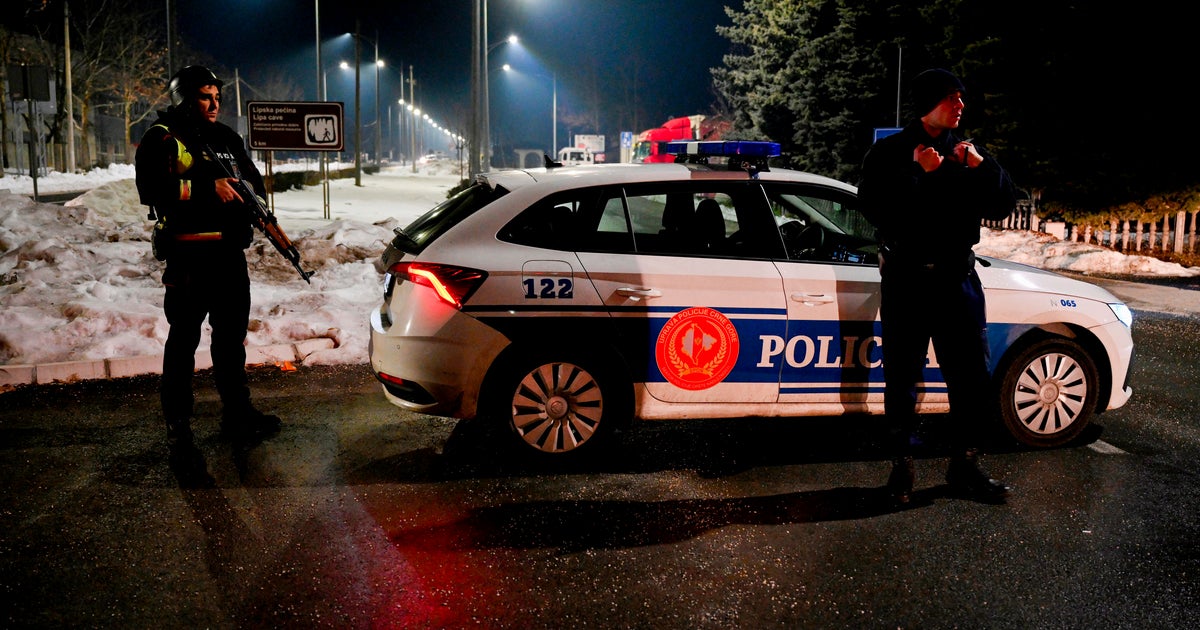Spooked by Halloween mayhem, Tokyo's famous Shibuya district tells revelers, "please do not come"
Tokyo — While boosting tourism is usually part of the job description for a local politician, the mayor of one Tokyo district is taking a different tack: He's pulling up the welcome mat.
"This year we're making it clear to the world that Shibuya is not a venue for Halloween events," Ken Hasebe, the mayor of one of the city's most well-known and bustling wards, told reporters this month at the Foreign Correspondents Club of Japan. "Please do not come to the Shibuya station area for Halloween."
Shibuya ward is going to unprecedented lengths to dissuade visitors in the days leading up to October 31. In addition to the "Don't visit" campaign, public drinking in the area will be banned starting days before Halloween, and the district's 35 local stores will be urged to stop selling alcohol. Some 300 private security guards have been hired and 150 city officials will help patrol and enforce the no-smoking and no-drinking ordinance, in addition to scores of police.
A former advertising executive who later started a street-cleaning nonprofit before winning office as an independent, Hasebe described how Shibuya's once-spontaneous, al fresco celebration of elaborate homemade costumes had degenerated into something closer to a giant outdoor frat party.
"The situation is much more serious than just over-tourism," he said. "We're talking about massive dumping of trash, arrests for molestation, voyeurism, property destruction."
Most worrying to civic leaders is the prospect of crowds overwhelming Shibuya's charming but cramped warren of bars, noodle joints and apparel shops. Absent extreme security, they warn, Shibuya is at risk for a crowd-crush disaster like the surge that killed more than 150 Halloween revelers in the South Korean capital last year.
While Shibuya's pre-pandemic Halloween crowds peaked at about 40,000 in 2019, authorities have been bracing for as many as 60,000 people to show up this month, Hasebe said. As much as 70% of the crowd, he estimated, would be non-Japanese. Katsuhiro Nishinara, a Tokyo University expert on crowd surges who has been advising Shibuya ward, called preparations "perfect," and said authorities would focus on routing pedestrians through one-way corridors on shopping streets and subway stair exits.
"There is a risk around the stations, especially subways," he told CBS News. "If someone pushes, or they have to push in front, then a stampede easily occurs."
Japan is a country with a population one-third the size of the United States' — but all those people are squeezed onto a landmass roughly the size of California, so the Japanese are no strangers to deadly crowd surges. In 2001, a stampede on a pedestrian bridge in the city of Akashi left 11 people dead and hundreds injured. The tragedy spurred a rethinking of how to police organized events — but not spontaneous gatherings, like Halloween, World Cup celebrations or New Year's Eve.
Shibuya's mayor has his job cut out for him: The neon signs, giant ad screens and skyscraper-studded cityscape surrounding Shibuya train station make the district one of Japan's biggest and most-photographed tourist draws.
Visitors patiently line up just to snap pictures in front of the famous but otherwise unremarkable Hachiko dog statue and to stroll through what may be the world's busiest pedestrian street crossing, the Shibuya Scramble. The iconic junction's intersecting crosswalks fill up with as many as 3,000 pairs of feet every time the light changes, and it's even featured as a backdrop in Hollywood movies, including "The Fast and the Furious: Tokyo Drift," and the horror film "Resident Evil: Afterlife."
Carving pumpkins, munching candy corn and toilet-papering houses never really took off in Japan. In fact, to many observers, Japan's version of Halloween bears a closer resemblance to the original free-spirited, come-one-come-all, ancient community harvest festival it's based on — albeit updated by urban youth.
Attempting to explain Halloween's explosive popularity among young Japanese, a store manager told business magazine Toyo Keizai in 2015: "In school, Japanese are thoroughly hammered into conformity. So, the pent-up desire for self-expression and transforming oneself is far more powerful here than in the West."
Shibuya initially welcomed the revelers, even setting up temporary restrooms and changing rooms, but the district reversed course in recent years as the crowding escalated to potentially dangerous levels. Foreign visitors — liberated by Japan's easy access to alcoholic beverages and the absence of open-container laws — had started getting rowdy.
Crowd-surge experts, including Hidemasa Yoshimura, a professor of architectural planning design at the Osaka Institute of Technology, are skeptical about the don't-visit-Shibuya campaign.
"Saying 'Don't come here' won't have much impact," he told CBS News. He advocates posting electronic signs that let pedestrians know in real time what's ahead, similar to highway signs warning motorists about traffic jams further up the road.
Those who come to Shibuya at the end of this month will see a heavy police presence, meant to keep crowds flowing and orderly, aided by officers known as "DJ Police" stationed atop special mobile platforms, issuing a stream of gentle admonitions, occasionally in English: "Beware of pickpockets... please keep moving."
For those who want to observe the festivities from a distance, live cameras stream the action at the Scramble crossing and the adjacent shopping and bar district, Center Gai.





